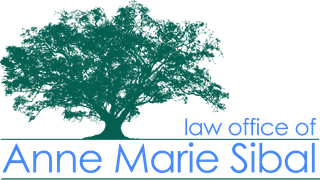What the heck is a probate asset and why do I care? Seriously. (And what’s a non-probate asset while you’re at it?)
If you have a will, or if you need to make one, you must understand the answer to this simple question. And I’ll make it multiple choice. If you do not know the answer, FEAR NOT, I am here and shall help you. The question is…
Q: What property does your will distribute to your chosen beneficiaries at your death?
a. Probate property b. Non-Probate property
A: Your will controls distribution of probate property not non-probate property.
Most of my clients know “probate” only as something they want to avoid but aren’t familiar with what it actually is before speaking to me. Probate is just the process during which a court determines how to distribute your property after you die.
Probate assets are distributed according to the terms of your will. If you do not have a will, the court will use state law (the laws of intestacy) to determine who should receive these assets. Certain property is called a “probate asset” because it requires a probate court order to pass the title from the deceased to his/her heir.
For example, George’s 1965 Mustang was titled only in George’s name. In his will, George left the 1965 Mustang to his niece, Savannah. George’s executor, through the probate court process, changed title of the Mustang from George to Savannah.
Probate assets may include the following:
- Real property that is titled solely in the decedent’s name or held as a “tenant in common” (not joint tenants with rights of survivorship)/li>
- Personal property, such as jewelry and furniture/li>
- Bank accounts, boats and automobiles that are solely in the decedent’s name/li>
- An interest in a partnership, corporation, or limited liability company held in the decedent’s name/li>
- Any life insurance policy or brokerage account that lists either the decedent or his/her estate as the beneficiary/li>
On the other hand, non-probate property avoids the court process and passes directly to your beneficiaries. Because of its form of title or beneficiary designation non-probate property doesn’t require a probate court order to pass the title.
Examples of non-probate assets may include the following:
- Property that is held in joint tenancy with rights of survivorship/li>
- Bank or brokerage accounts held in joint names or with payable on death (POD) or transfer on death (TOD) beneficiaries/li>
- Boats or automobiles held in joint names with rights of survivorship/li>
- Any property held in the name of a trust/li>
- Life insurance or brokerage accounts that list someone other than the decedent’s estate as the beneficiary/li>
- Retirement accounts that name a beneficiary other than the decedent’s estate
When planning your estate, it is vital for you to know whether your property will be probate property or non-probate property so you can take the appropriate steps to accomplish your goals for transferring your assets at your death. I encourage you to check to see how your home, vehicle and other property is titled to see how that possessions should be considered when making your estate plan.
Should you need an estate planning attorney to assist you in creating your will, keep me in mind as I near the mid-January formal opening of my completely virtual legal office. I would be honored to assist you.
We will get back to you as soon as possible.
Please try again later.
The Law Office of Anne Marie Sibal. All Rights Reserved.

